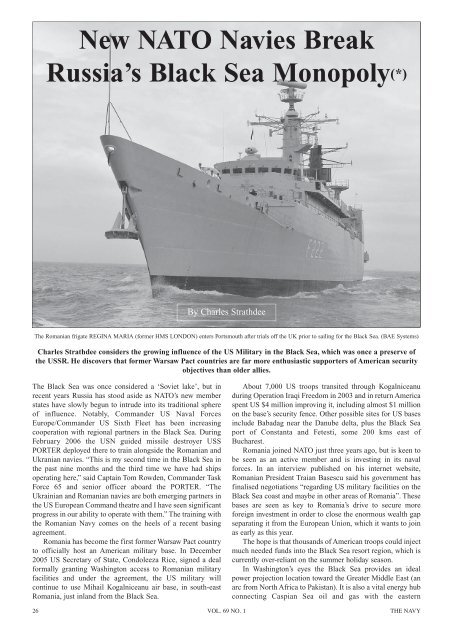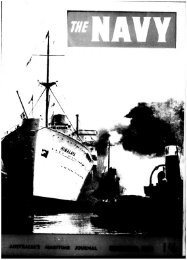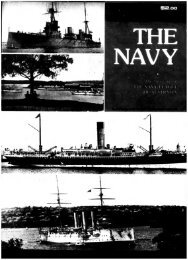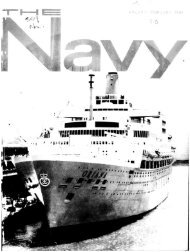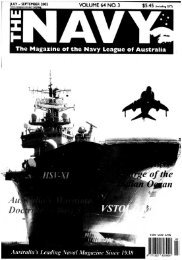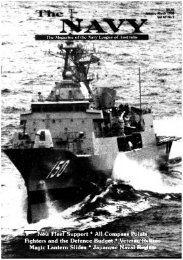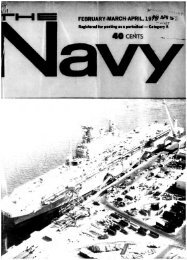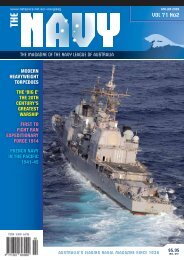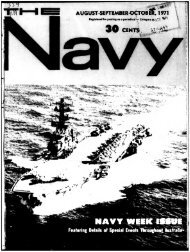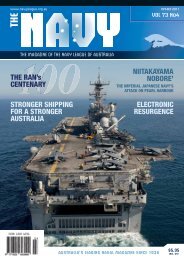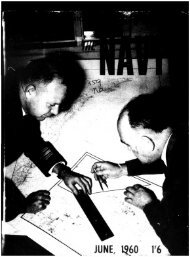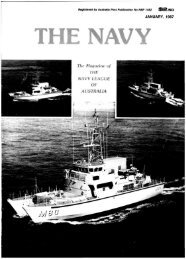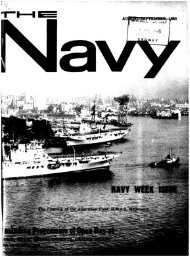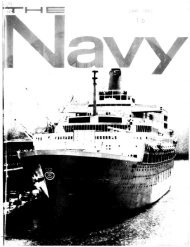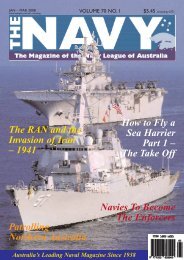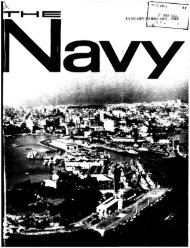Create successful ePaper yourself
Turn your PDF publications into a flip-book with our unique Google optimized e-Paper software.
New NATO Navies Break<br />
Russia’s Black Sea Monopoly(*)<br />
The Black Sea was once considered a ‘Soviet lake’, but in<br />
recent years Russia has stood aside as NATO’s new member<br />
states have slowly begun to intrude into its traditional sphere<br />
<strong>of</strong> influence. Notably, Commander US Naval Forces<br />
Europe/Commander US Sixth Fleet has been increasing<br />
cooperation with regional partners in the Black Sea. During<br />
February 2006 the USN guided missile destroyer USS<br />
PORTER deployed there to train alongside the Romanian and<br />
Ukranian navies. “This is my second time in the Black Sea in<br />
the past nine months and the third time we have had ships<br />
operating here,” said Captain Tom Rowden, Commander Task<br />
Force 65 and senior <strong>of</strong>ficer aboard the PORTER. “The<br />
Ukrainian and Romanian navies are both emerging partners in<br />
the US European Command theatre and I have seen significant<br />
progress in our ability to operate with them.” The training with<br />
the Romanian <strong>Navy</strong> comes on the heels <strong>of</strong> a recent basing<br />
agreement.<br />
Romania has become the first former Warsaw Pact country<br />
to <strong>of</strong>ficially host an American military base. In December<br />
2005 US Secretary <strong>of</strong> State, Condoleeza Rice, signed a deal<br />
formally granting Washington access to Romanian military<br />
facilities and under the agreement, the US military will<br />
continue to use Mihail Kogalniceanu air base, in south-east<br />
Romania, just inland from the Black Sea.<br />
By Charles Strathdee<br />
The Romanian frigate REGINA MARIA (former HMS LONDON) enters Portsmouth after trials <strong>of</strong>f the UK prior to sailing for the Black Sea. (BAE Systems)<br />
Charles Strathdee considers the growing influence <strong>of</strong> the US Military in the Black Sea, which was once a preserve <strong>of</strong><br />
the USSR. He discovers that former Warsaw Pact countries are far more enthusiastic supporters <strong>of</strong> American security<br />
objectives than older allies.<br />
About 7,000 US troops transited through Kogalniceanu<br />
during Operation Iraqi Freedom in 2003 and in return America<br />
spent US $4 million improving it, including almost $1 million<br />
on the base’s security fence. Other possible sites for US bases<br />
include Babadag near the Danube delta, plus the Black Sea<br />
port <strong>of</strong> Constanta and Fetesti, some 200 kms east <strong>of</strong><br />
Bucharest.<br />
Romania joined NATO just three years ago, but is keen to<br />
be seen as an active member and is investing in its naval<br />
forces. In an interview published on his internet website,<br />
Romanian President Traian Basescu said his government has<br />
finalised negotiations “regarding US military facilities on the<br />
Black Sea coast and maybe in other areas <strong>of</strong> Romania”. These<br />
bases are seen as key to Romania’s drive to secure more<br />
foreign investment in order to close the enormous wealth gap<br />
separating it from the European Union, which it wants to join<br />
as early as this year.<br />
The hope is that thousands <strong>of</strong> American troops could inject<br />
much needed funds into the Black Sea resort region, which is<br />
currently over-reliant on the summer holiday season.<br />
In Washington’s eyes the Black Sea provides an ideal<br />
power projection location toward the Greater Middle East (an<br />
arc from North Africa to Pakistan). It is also a vital energy hub<br />
connecting Caspian Sea oil and gas with the eastern<br />
26 VOL. 69 NO. 1 THE NAVY


